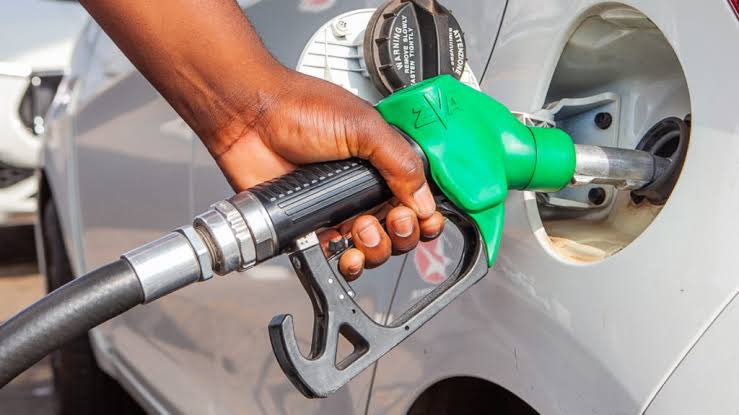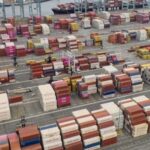The Nigerian government has finally addressed the speculations about the proposed 5% fuel surcharge, a policy that has sparked heated debates across the nation.
This comes after Nigerians have demanded accountability on how the 5% fuel surcharge will impact the cost of living.
Pan-Atlantic Kompass reports that the controversy emerged after President Bola Tinubu signed the tax reform bills into law.
Speaking amidst the massive debates, the chairman of the Presidential Committee on Fiscal Policy and Tax Reforms, Taiwo Oyedele, on Saturday, through a post on X, clarified the 5% fuel surcharge.
Oyedele clarified: “The charge is not a new tax introduced by the current administration. The provision already exists under the Federal Roads Maintenance Agency (Amendment) Act, 2007. Its restatement in the new Tax Act is for harmonisation and transparency rather than immediate implementation.”
According to Oyedele, the surcharge is meant to fund road infrastructure, which he said is an area that has been underfunded in the past.
Oyedele explained that the surcharge will be used by the Federal Government to create a dedicated, predictable funding source for road construction and maintenance.
He asserted: “The surcharge is designed as a dedicated fund for road infrastructure and maintenance. If implemented effectively, it will provide safer travel conditions, reduce travel time and cost, lower logistics costs and vehicle maintenance expenses, which will benefit the wider economy. This practice is virtually universal, with over 150 countries imposing various charges ranging from 20% to 80% of fuel products to guarantee regular investment in road infrastructure.
“While subsidy savings will provide some funding, they are insufficient to meet Nigeria’s huge and recurring road infrastructure needs, among other public finance needs. A dedicated fund ensures reliable and predictable financing for roads, complementing the budget and ensuring roads are not left underfunded.”
On when the 5% tax surcharge will begin, Oyedele debunked speculations that Nigerians will start paying by January 2026.
He said: “No. It will only take effect when the Minister of Finance issues an order published in the Official Gazette.
“The surcharge does not take effect automatically with the new tax laws. It will only commence when the Minister of Finance issues an order published in the Official Gazette as stated under Chapter 7 of the Nigeria Tax Act, 2025. This safeguard ensures careful consideration of timing and economic conditions before implementation.
“Yes, the surcharge has been removed from the FERMA Act and incorporated into the new tax laws which are designed to provide a forward-looking legal framework for Nigeria. Keeping this provision in place within a harmonised legal framework ensures Nigeria is prepared to address critical challenges, such as sustainable road financing and even climate change impacts. It is not about immediate implementation, but to ensure the law provides a clear and effective framework for when it becomes necessary in the future.”
Speaking further, Oyedele said: “No. Household energy products such as kerosene, LPG, and CNG are exempt. Clean and renewable energy products are also excluded to support Nigeria’s energy transition agenda.
Addressing claims that the new tax will place more burden on Nigerians, Oyedele reassured: “The reforms have already reduced multiple taxes and removed or suspended several charges that directly affect households and small businesses, such as VAT on fuel, excise tax on telecoms, and the cybersecurity levy. By harmonising earmarked taxes, the government is reducing duplication and ensuring a more efficient tax system.”
Pan-Atlantic Kompass reports that this comes after many Nigerians have rejected the 5% fuel surcharge.
Leading the public discourse, Peter Obi, the 2023 presidential candidate of the Labour Party, criticised the administration of President Bola Tinubu.
Obi said the tax will affect Nigerians as the move will increase the cost of living.
He said: “When will Nigerians truly breathe? A timely and relevant question, as a new 5% tax on all refined fossil fuel sales, including petrol and diesel, has just been announced by the Federal Government.
“That is, Nigerians will pay a 5% tax when buying their everyday fuel or diesel at a time when millions can hardly even afford the cost of transportation.
“Mr. President just yesterday boasted that Nigeria has met its revenue target for the year. Yet instead of easing hardship, the government imposes more burden on Nigerians.
“Even the so-called alternative, CNG, has become unaffordable, rising from about ₦230 to ₦450, while the promised subsidies on the CNG have quietly vanished.
“If our revenues are truly ‘excessive’ as claimed, should they not first be used to fund education, healthcare, and pulling Nigerians out of poverty? Why tax citizens who cannot even breathe anymore?
“This 5% fuel tax should wait until Nigerians begin to see tangible improvements in their lives from all the many promises from Mr. President.
“Leadership is not about giving a burden, it is about reducing suffering, it is about care and compassion.”





